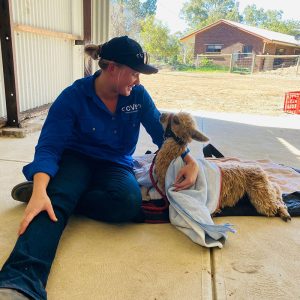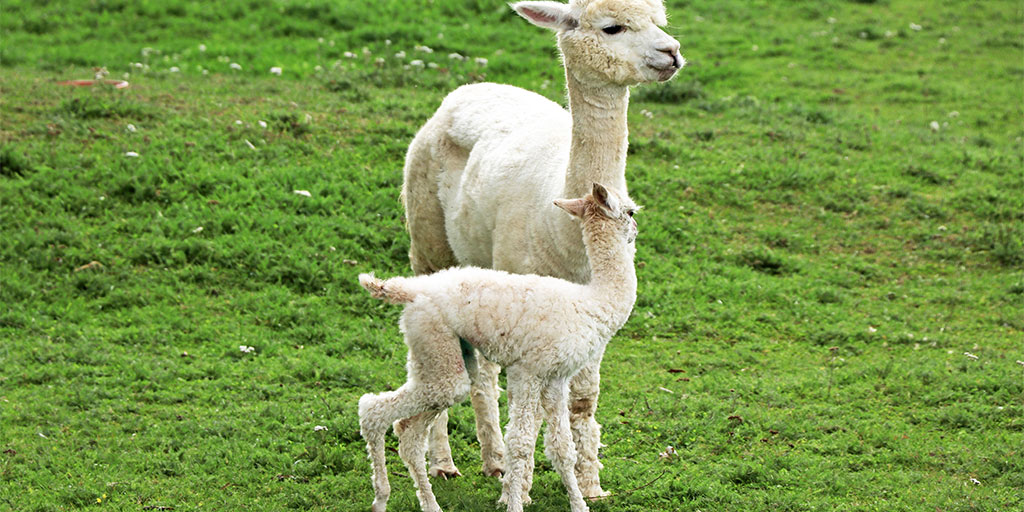Vitamin D deficiency is one condition that we see much more often in alpacas compared to any other livestock. In our Adelaide Hills region and surrounds, this deficiency typically occurs over the winter and spring months due to a lack of exposure to ultraviolet light.
A vitamin D deficiency in alpacas can cause the bone disorder rickets, a very painful condition that if left untreated can lead to stunted growth or calcification of their bones.
With alpacas being such stoic animals who do their best to hide any signs of illness, it’s important to understand the key risk factors and symptoms of rickets, as well as knowing how you can prevent the condition from occurring.
Key risk factors
The main risk factor when it comes to alpacas developing rickets is vitamin D deficiency. Vitamin D plays a crucial role in the effective absorption and circulation of calcium and is essential for healthy bone growth.
A lack of exposure to sunlight is the major cause of a vitamin D deficiency in alpacas, with some animals more susceptible to developing rickets than others.
Baby alpacas (known as crias) are most at risk of developing rickets, particularly those born in winter and early spring due to a lack of exposure to sunlight during their early growth stages.
Pregnant and lactating alpacas are also more susceptible to rickets and can pass on their own mineral deficiencies to their young.
Alpacas with darker fleeces are also more likely to be deficient in vitamin D, leading to a higher incidence of rickets in darker-coloured alpacas compared to those with lighter fleeces.
Symptoms of rickets in alpacas
Signs of rickets in alpacas include:
- Lameness
- Hunched back
- Weight loss
- Skeletal abnormalities
- Bowed legs
- Laying down or sitting more than usual
- Fractures
In crias with rickets, you will notice that they are smaller than others their age due to a slowed growth rate. They may also lag behind the group due to the pain they experience when trying to walk.
Treating rickets
Rickets is typically diagnosed based on clinical signs. The condition won’t be resolved without treatment, so it’s important to get in touch with your vet if you notice any indication that your alpacas may have rickets. Treatment for rickets is the injection of vitamin D.
Preventing rickets in your alpacas
Like so many conditions that affect animals (and people for that matter!), prevention is key. Studies carried out in South Australia show that Vitamin D-deficient crias and alpacas are more prone to rickets and experienced lower growth rates when compared to those patients supplemented with Vitamin D.
At Cameron Veterinary Services, we commonly recommend Vitamin D supplementation to our alpaca clients here in the hills. While supplementing crias and mothers is essential, it is also beneficial to provide supplementation to all alpacas in your herd.
It is possible to overdose your alpacas with too much vitamin D, so it is important to always consult with a vet before commencing any supplementation program.
 Contact the CVS team
Contact the CVS team
To discuss the husbandry of your alpacas and develop a Vitamin supplementation plan please call us on 8318 1801 to organise a consult with one of our friendly vets. Our vets travel all across the Adelaide Hills and greater Adelaide region, and also have a new vet clinic in the Springwood Place shopping complex in East Gawler.



